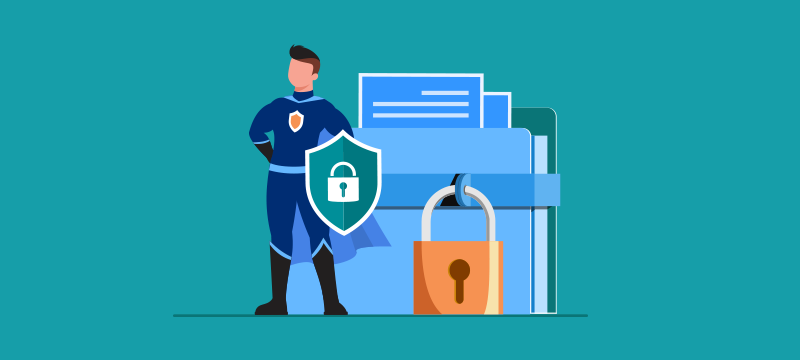Cybercrime is troublesome all across the world and causes unimaginable financial damage that ends up victimizing individuals as well as companies. In 2021 research found that approximately 7 out of 10 people were affected by scammers in the past year alone. This unprecedented rise in cybercrime has made educating the public about online security an absolute priority. We have outlined 6 ways to keep all of your devices and accounts safe to avoid identity theft.
-
Avoid reusing passwords
The basis of all online security is passwords. It is what most people think about when they think of protecting their online presence or the devices they browse on. There are several aspects of password security that we need to keep in mind. One of the main points includes not reusing passwords that you have used before for the same or another account. If you’re thinking of using the same password again, just avoid doing that. This needs to be vigilantly applied for various crucial accounts such as online banking and while accessing your emails. If you use the same password for several accounts, the hackers just need to break into one of your accounts by figuring out your password and they will be able to access all parts of your life. The risk is just not worth it. Hence the basis of your online security is assigning a distinctive password for your every account. Even if one account is hacked, you can limit the damage and stop it from spreading to other accounts or devices.
-
Keep your mobile life safe
Our mobile devices are not immune to online attacks similar to computers. There is a possibility of mobiles and tablets being exposed to more kinds of risks like malicious apps and receiving messages with dubious links. It would be best if you were extremely vigilant about what you click on as it could land you in some hot water. If you receive messages from unknown people that seem suspicious, don’t answer. Official app stores are the only place you should get your apps from, and only once you’ve verified their authenticity from the reviews it has received. Ensure that all of your devices are protected with top-notch security software.
-
Use authentication that has multiple layers
Multistage authentication is the best option for websites that are more susceptible to being targeted by hackers or those that have high stakes that can cause severe damage. These include banking sites and websites that include payments like PayPal. Multistage authentication puts in more than just a password to protect your account. Once you put in the password, a code is sent via text to your phone and you have to insert the code to use the account. This keeps hackers from gaining access to your account.
-
Put a firewall into place
A firewall should be used even if you believe your network to be entirely safe. It works like an electronic barrier that stops unapproved people from gaining access to your various devices and also has software security that is included. The firewall ensures the safety of your network along with all the devices that use it. It also keeps the Internet of Things devices safe. It includes webcams as well as thermostats. It is crucial because IoT has no safety. This gets rid of various kinds of vulnerabilities that can be exploited by hackers.
-
Avoid interacting with unreliable links
Someone familiar to you might send a link that makes you feel safe enough to click on it. Unfortunately, this is how you open the door for different kinds of malware and viruses to walk in. If a link is sent to you from someone that you’re familiar with like your friends, colleague, or family, or it does not look reliable, you should get in touch with them to ensure that it is a legitimate link that they have sent. You might think it is a hassle, but it is better to avoid trouble than to regret it later.
-
Secure your Personal Identifiable Information
Any information that lends a cyber criminal a helping hand to pinpoint or track down an individual is known as Personal Identifiable Information. It includes various elements such as phone numbers, names, social security numbers, date of birth, address, or any data that can identify you. With social media, the world is always active, which means that you have to be ever vigilant of the kind and amount of personal information you offer online. It is preferable if you keep the majority of your confidential information off of social media. You could amplify your security through the use of privacy settings that are available on all social media platforms. If your social media includes your PII information, there is a great possibility of that information being used for hacking into your system. This elevates the probability of your account being attacked since hackers use all of this information to accomplish their malicious intent.
Conclusion
Putting the tips mentioned above into play will help you secure your website better. You can also take the help of your cheap shared hosting service to ensure that your account and system are impenetrable. There are malicious attackers everywhere, so you need to ensure that you take ample measures to protect yourself.
